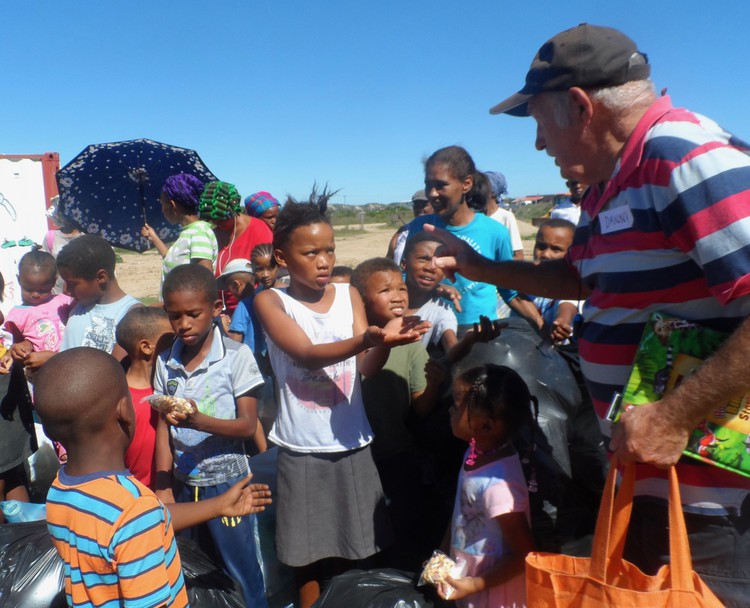
Top stories






More news


Marketing & Media
Ads are coming to AI. Does that really have to be such a bad thing?














Thamara Gqogqani, a grade seven learner, said she is always on the lookout for empty plastic bottles and metal tins which she stores at her home. “This is helping my family very much because my parents do not work. I move around collecting empty plastic bottles because I know that at the end of the month I get groceries and school stationery from the shop.”
Colchester, 40km north of Port Elizabeth, is one of the poorer communities in the Nelson Mandela Bay Municipality. A few bed and breakfast establishments and a Spar supermarket on the N2 highway are the main employers in the town.
The Colchester Recycling Swop Shop, which started in August 2015 as a not-for-profit organisation, operates from two containers at Colchester Primary.
“We come here on the last Friday of every month,” says Sue Lake, who runs the programme. “The children bring used, empty plastic bottles and tins. They are weighed and they receive a ticket with points according to the weight. They are then helped to choose something from the swop shop to the value of their points.”
“We cater for two to 15-year-olds … We rely on donations from individuals and the Sunshine Coast Charity Trust kindly donate non-perishable foods. We stock food, donated clothes, toys, toiletries, stationery and books that we give to the children. Food is the most sought after, as there are many impoverished people in the area and unemployment is very high.”
Lake says the recycling teaches children about the environment and that even as children they are able to make a difference. She says the children are very proud of how big their bags of recycled materials are when they bring them to the shop.
Wendy Ndabula, who lives in Colchester with her four children, says, “This is not only helping us in terms of cleaning the environment, but our children are growing up with a sense of responsibility. They always teach us at home that it is not good to throw away litter everywhere as there is money in empty plastic bottles.”
“I no longer buy school items for my children because they have to work hard collecting empty bottles and tins for them to exchange with either books, food or clothing,” says Ndabula.
Thamsaqa Maseti, 68, who has five children, says he assists the swop shop by packing the plastic bottles and checking that people stand patiently in the queue. “I get paid some money for assisting in the program. The money is helping my family buy other necessities like electricity coupons and for transport money when I want to travel.”
Lake says, “There are usually between 80 and 150 children who come for the project … I think it is important to give the kids a ‘hand up’ rather than handouts. We have also had a cleanup day with the children to pick up the litter as dumping is an ongoing problem … The children have had several talks about recycling and it is hoped that they will have a positive influence in the community.”
Published originally on GroundUp.
© 2018 GroundUp.
This article is licensed under a Creative Commons Attribution-NoDerivatives 4.0 International License.

GroundUp is a community news organisation that focuses on social justice stories in vulnerable communities. We want our stories to make a difference.
Go to: http://www.groundup.org.za/